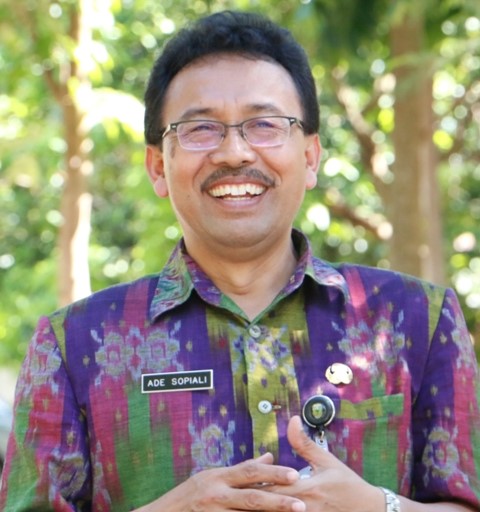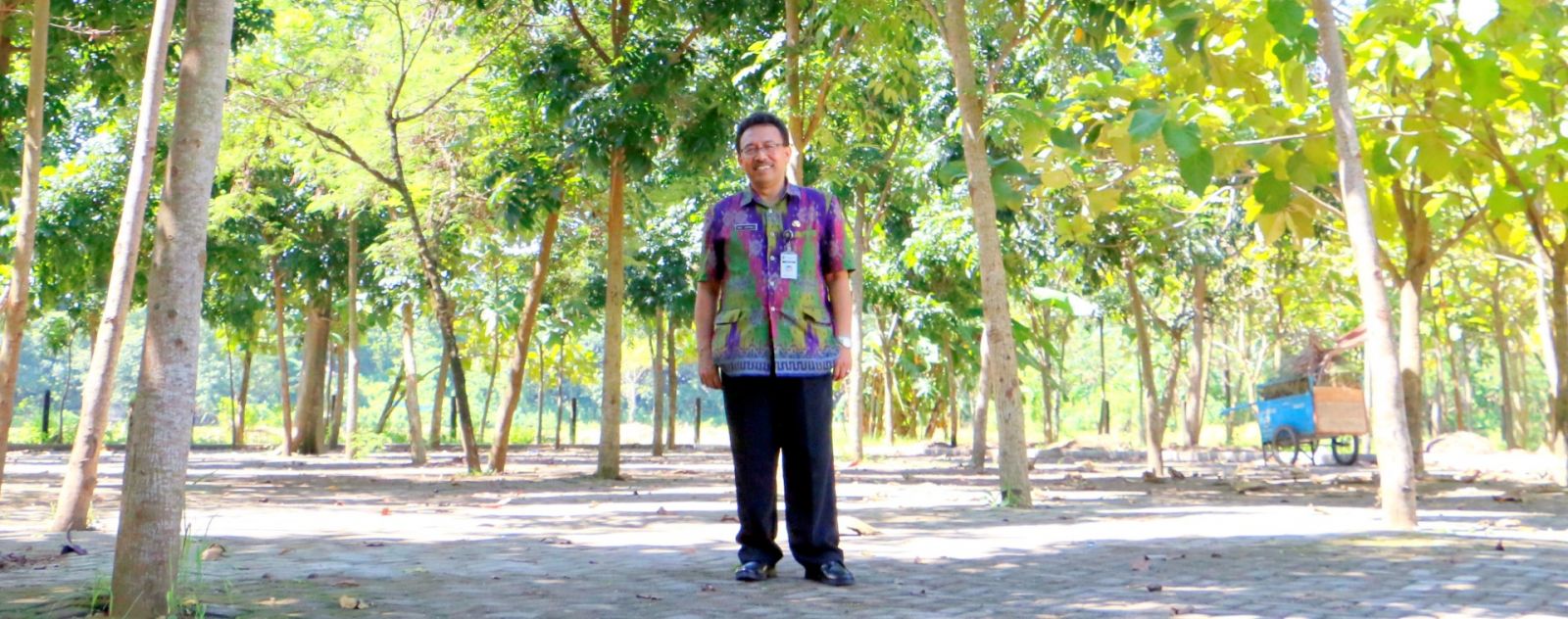Posted date


This is the dream of Mr. Ade, former Principal of SMKN 1 (High School) Jepara, who joined the Trees4Trees tree planting program in 2008. As the Area Manager of the Trees4Trees Program for Jepara area at that time, Mr. Ade was supervising four Field Coordinators who were recruited from the teachers at SMKN 1 Jepara. A total of 17,852 trees were planted at the beginning of the program in 2008. In addition to planting the farmer land, Mr, Ade also developed a city forest of approximately 2 hectares at the schoolyard.
The challenges in planting the school land were not only technical problems, such as the land condition close to the sea with high salt content, but also non-technical problems, such as the debate of pros and cons within the school staff circles. However, Mr. Ade insisted on implementing this program and the result at present is that Mr. Ade’s plants are have been declared as the City Forest by the Bupati (District Head) of Jepara and 84,333 trees have been planted through the Trees4Trees program in Jepara District.
In 2010 Mr. Ade was promoted to become the SMK school supervisor at the Education and Sport Agency of Jepara. In 2014 Mr. Ade, working jointly with Trees4Trees, initiated a more ambitious planting program, involving 21 SMKs under his responsibility. This program combines the elements of education and planting with the engagement of students, parents and farmers. A total of 42,000 trees will be planted this year with an average of 2,000 trees per school.
Excerpts from an interview with Mr. Ade:
Why are you interested in developing the tree planting program at all SMKs in Jepara?
It was initially the success of greening the SMKN 1 Jepara school environment until the Decree of Bupati was established to make it a city forest and this was something that made me proud. This was in addition to something else that made me more proud, namely that the program with T4T has improved the learning environment at school and I imagine that if this occurs at all SMKs in Jepara, the learning and teaching environment becomes better and ultimately this will certainly provide value to the student quality improvement. Imagine if this takes place throughout Jepara.
How do you ensure that the T4T program does not interrupt the main tasks of teachers in teaching and learning?
It should not interrupt since the T4T program is consistent with the 2013 curriculum where one of its essences is the *Wiyata Mandala Insight, so that the teachers and students should be able to mutually support each other and may become the means to improve the awareness of teachers and students in the environmental sector. The 2013 curriculum is also associated with knowledge, skill and attitude. The knowledge and skill can be learned at school but the attitude can be learned in the family, within the community and at school. This needs obvious examples and one of those is the attitude of concern toward the environment. This indeed is not easy, and not like a toll road. It needs good time management by the teachers including the change of mindset that the “wiyata mandala” program is one of the responsbilities of the teacher. T4T program is in line with this.
Ade Sopiali
Educational History
SPMA graduated in 1983,
S1-IPB graduated in 1995
S2-UMS graduated in 2005
Work Experience
Teacher at SMK of Agriculture in West Sumatera
Teacher at SMK of Agriculture in Tegal
Principal of SMKN-1 Jepara
SMK School Inspector of Jepara Regency
*Wiyata Mandala is the responsibility of the Headmaster and Teacher to ensure the school provides 8 conditions. Two conditions that apply here are :
1. Good school environment (clean, many trees, comfortable, etc.)
2. Harmonious relationship with communities, students, and the parents of student.


Add comment